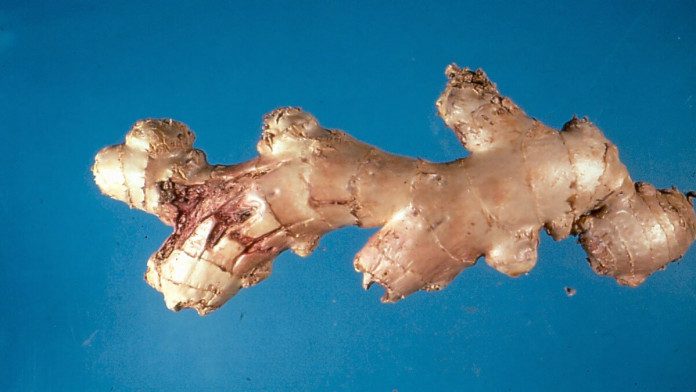News in Brief:
– A ginger blight epidemic ravaged farms in Nigeria, causing billions in losses and threatening the country’s position as the world’s second-largest ginger producer.
– The government responded by forming a task force and allocating a ₦1.6 billion recovery package to affected farmers.
Nigeria’s Ministry of Agriculture has confirmed a significant outbreak of ginger blight disease affecting farms in Kaduna, Nassarawa, Plateau, and the Federal Capital Territory.
This fungal infection has caused billions of naira in losses, impacting not only farmer livelihoods but also Nigeria’s position as the world’s second-largest ginger producer.
Nigeria’s federal government estimates that affected farmers, particularly in southern Kaduna, have incurred losses exceeding ₦12 billion due to the disease.
However, in a bid to mitigate the impact, the government has established a National Ginger Blight Epidemic Control Taskforce. The government has also pledged a ₦1.6 billion recovery package for affected ginger-producing regions.
Recognising the importance of preparedness, the Nigeria’s Minister of State for Agriculture, Aliyu Abdulahi, stressed investing in research, extension services, and farmer support systems to ensure long-term agricultural sustainability.
Chairman of the task force, Abubakar Abdullahi, acknowledged the negative impact on Nigeria’s GDP and highlighted the urgency of addressing the crisis. He revealed that the task force plans to establish subcommittees and potentially co-opt additional members to strengthen its response and efficiently tackle the challenges posed by the ginger blight epidemic.
The initiative demonstrates the federal government’s commitment to supporting farmers and safeguarding Nigeria’s agricultural sector in the face of the devastating disease.



